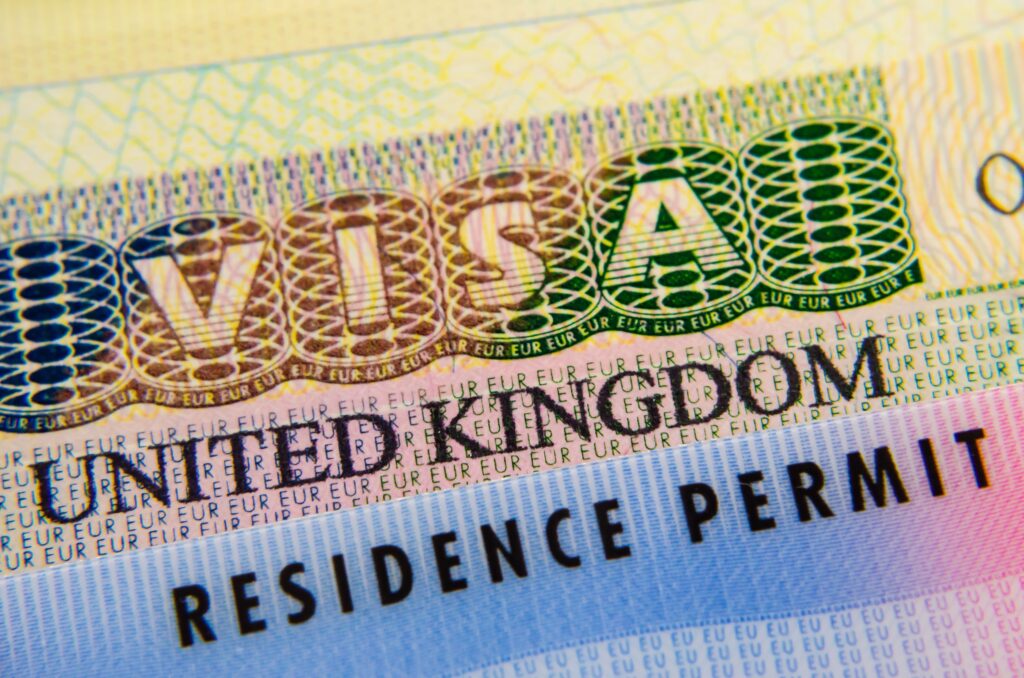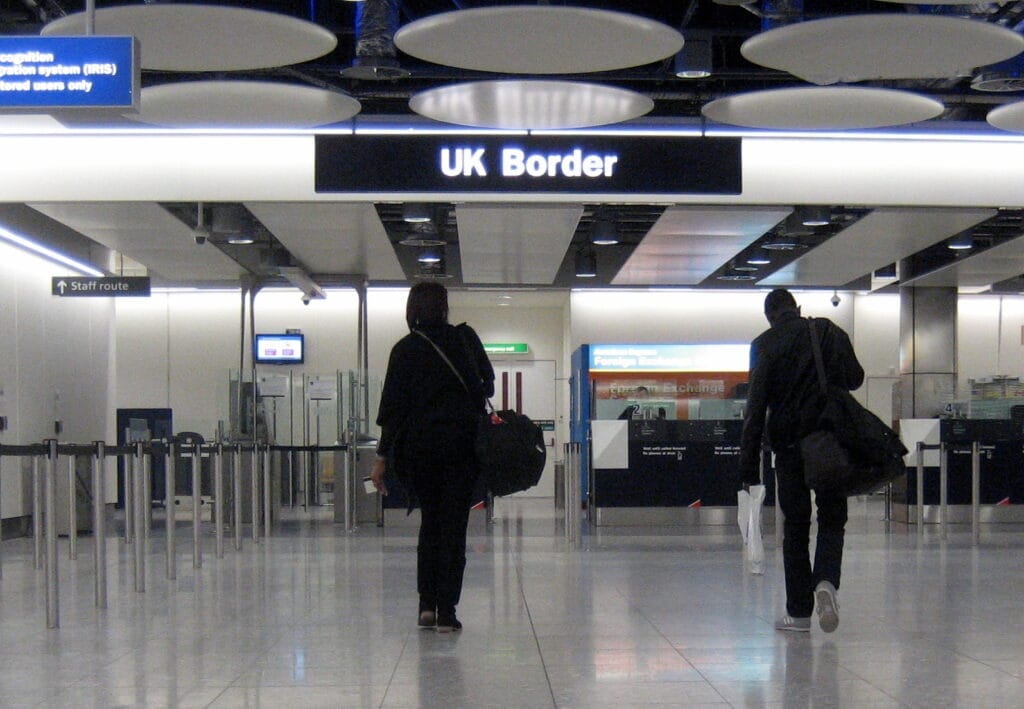Global immigration news round-up
This week, the Global Immigration team at Smith Stone Walters would like to highlight the following recent updates from Denmark, Ireland, Italy, Malaysia, South Africa, Sweden, Switzerland and the United States.

Denmark: Extension of residence permit under the Ukraine-Special Act
On 26 November 2024, the Danish Parliament decided that residence permits granted under the Act on Temporary Residence Permits for persons displaced from Ukraine can be extended until 17 March 2026.
The new rules for extending residence permits under the Act on Temporary Residence Permits for Persons Displaced from Ukraine (hereinafter the Special Act) will come into effect on 1 December 2024. Those who have a residence permit under the Special Act can have their residence permit in Denmark extended until 17 March 2026, if they continue to meet the conditions.
The Immigration Service will automatically assess whether a residence permit under the Special Act can be extended. If the holder still complies with the requirements laid down in the current residence permit, the immigration service will automatically extend the residence permit.
When the Immigration Service has processed the case, and the residence permit has been extended, the holder will receive a new residence card by mail, without the need for biometric registration.
The Immigration Service will process a case as soon as possible and aims to have it processed before the current residence permit under the Special Act expires. The processing of most cases is expected to be completed before 17 March 2025. If a case is not processed before this date, the holder is still entitled to stay in Denmark with the same rights.
Ireland: Travelling on a recently expired Irish Residence Permit
Effective 2 December 2024 to 31 January 2025 only, the government has issued a Travel Confirmation Notice requesting carriers to allow individuals to travel internationally on their recently expired Irish Residence Permit (IRP) card where an application to renew their permission was submitted in advance of the expiry date of their IRP card.
Non-EEA nationals in Ireland who are required to apply for a renewal of their IRP card may use their current recently expired IRP card to enable them to travel during this period.
Those intending to travel under these arrangements should print out the notice and present it, along with their expired IRP card, and proof of renewal application (email confirmation which details the date of application) to immigration authorities and airlines if requested to do so.
A receipt of application which details the date of application and OREG number will provide proof that they have applied to renew their registration prior to their current IRP card expiring.
If, however, their current permission expired prior to submitting an application for renewal, they are considered out of permission and the Travel Confirmation Notice will not apply.
Those who wish to remain abroad after 31 January 2025 will need to renew their IRP card before they travel. Visa-required nationals who have been unable to renew their IRP card before travel may, on an exceptional basis, be able to apply for a visa to renter Ireland at the local Irish embassy or consulate. More information is available here.
Background:
Immigration Services are currently experiencing a backlog in processing registrations across several locations. Following the completion of a registration, it may take a further two weeks to receive an Irish Residence Permit (IRP) card via post.
Italy: Senate approves law on entry of foreign workers, exploitation and asylum
On 4 December 2024, the Senate approved a new law regarding the entry into Italy of foreign workers, protection and assistance to victims of labour exploitation, management of migration flows and international protection, as well as related judicial proceedings.
The changes relevant to foreign workers in the first part of the law include the following:
- Effective 11 January 2025, the registration of fingerprints, currently required for Schengen visas only, is extended to national visas.
- Pre-filling of work permit applications will be permitted before the “click day” (the day that applications can be submitted), so as to extend the time for checks. The pre-filling period for the February 2025 click days was 1 to 30 November 2024.
- The IT systems of the Ministries of the Interior and Labor, INPS, Chambers of Commerce, Revenue Agency and Agid (Agency for Digital Italy) will be integrated in order to automatically verify some types of data in work permit applications
- A new “click day” is established on 1 October 2025 for the tourism-hotel sector, to satisfy which 30% of the quotas already reserved for the sector will be set aside.
- The new decree increases the quotas reserved for seasonal workers for the year 2025, which go from 93,550 to 110,000 distributed equally between the agricultural and tourist sectors (without prejudice to the quotas that are reserved for citizens of countries with agreements on migration, respectively 47,000 for the agricultural sector and 37,000 for the tourist sector).
- Effective January 2025, employers will be required to confirm their intention to employ the foreign worker, before the issuance of the entry visa, within seven days of the communication of the conclusion of the investigations on the entry visa application submitted by the worker.
- The number of permitted applications will be restricted for three years for employers who do not sign the employment contract after the entry of the foreign worker or who use foreign workers without a contract;
- The employer must elect a digital domicile (PEC) and sign and send the certificate of housing suitability and the residence contract digitally, removing the need for the employer and the worker to visit the immigration office in person to sign the residence contract. This now also applies to the seasonal work permit.
- Integration agreements must now also be signed digitally.
- The authorities are no longer required to issue a notice of rejection before refusing an entry visa.
- The number of applicationsthat can be submitted by an employer will be limited in proportion to their turnover, number of employees and sector of activity;
- If the competent employment centre does not communicate within 8 days (reduced from 15 days) of receipt of the request that it has identified one or more available workers in line with the desired profile, the employer may legitimately consider that the labour market search has had a negative outcome and proceed with the request for clearance for work.
- Seasonalworkers will be able to sign a new contract with the same or with another employer within 60 daysof the expiry of the previous contract, during the period of validity of the work authorization.
- Seasonalworkers and holders of an EU residence permit for long-term residents issued by another EU Member State will also be able to convert to a fixed-term or permanent work permit outside of the quota limits.
- An experimental entry route will be introduced in 2025 for up to 10,000 foreign care workers intending to work with the elderly and disabled, through employment agencies and employer organizations. This is in addition to the 9500 quotas already allocated by the decree flows to the family care sector. The click day for the submission of these applications is 7 February 2025. In the first twelve months of employment, these workers will only be able to exercise the authorized work activity and any changes of employer are subject to prior authorization by the competent territorial labour inspectorates. At the end of the twelve months, in the event of an offer of another fixed-term or indefinite employment contract, a new clearance must be requested from the immigration authorities, subject to quotas.
- The principal that silence implies assentwill be removed for the examination phase of applications relating to workers from countries at risk (in 2025 these are Bangladesh, Pakistan and Sri Lanka);
- More staff will be dedicated to entry procedures for work reasons at the Ministries of the Interior and Foreign Affairs.
Malaysia: MDEC opens expatriate projection applications for the year 2025
Effective 1 January 2024, companies that are registered with Malaysia Digital Economy Corporation (MDEC) may submit their Foreign Knowledge Worker (FKW) quota request for Employment Pass (EP) for the Year 2025.
Submissions will be auto approved. Companies are required to provide relevant justifications upon submitting their FKW quota requests.
Kindly take note that the projected FKW quota submitted must be utilized within the current year and cannot be carried forward to the following year. As such, any FKW headcount request in 2024 will be forfeited by 31st December 2024.
Companies can continue to apply for quotas throughout 2025 when required.
For companies registered with the Expatriate Services Department (ESD), 2025 quota projections have been accepted since 1 December 2024.
South Africa: Zimbabwean Exemption Permit extended
The South African Department of Home Affairs has officially extended the validity of the Zimbabwean Exemption Permit (ZEP) for another 12 months, up to 28 November 2025, to comply with a Gauteng High Court order requiring consultation with stakeholders on the future of the ZEP programme.
According to the Minister’s Immigration Directive No 15 of 2024:
- No holder of a ZEP may be arrested, ordered to depart or be detained for deportation or deported for any reason related to not having any valid exemption certificate;
- ZEP holders can enter and leave South Africa provided they meet the other immigration requirements, except for the requirement to hold a valid visa.
- ZEP holders are not required to show exemption certificates when applying for a temporary visa under section 10(2) of the Immigration Act.
The ZEP allows Zimbabwean nationals to live, work and study in South Africa if they meet certain conditions.
Sweden: Parliament decides to implement new EU Blue Card directive
The Riksdag has decided to implement the EU’s new Blue Card directive via Swedish legislation that enters into force on 1 January 2025.
The new legislation will make the following amendments to the EU Blue Card rules in Sweden:
- The minimum salary threshold is lowered from 1.5 times to 1.25 times the average gross annual salary in Sweden.
- The minimum length of employment is reduced from one year to six months.
- More categories of people have the opportunity to be granted an EU Blue Card.
- It will be possible to switch to another highly qualified job without applying for a new EU Blue Card. Instead, a notification of new work or other changes that affect the conditions must be notified to the Swedish Migration Agency.
- The possibility to change from other types of residence permit to an EU Blue Card without having to leave the country is expanded. Anyone who has had an EU Blue Card in another EU state for at least 12 months may, under certain conditions, apply for an EU Blue Card in Sweden with a somewhat simplified procedure.
The change aims to attract and retain highly qualified workers by giving more people the opportunity and at the same time making it easier to apply for an EU Blue Card.
An EU Blue Card is a combined residence and work permit for people from countries outside the EU, who have an employment contract for a highly qualified job. An employment is highly qualified if it requires that the employee has relevant and special competence for it in the form of completed studies corresponding to 180 higher education credits or five years of professional experience in the profession or industry to which the employment relates.
Switzerland: Federal Council maintains the same work permit quotas for 2025
On 27 November 2024, the Federal Council decided to keep unchanged the quotas for workers from third (non-EU) countries and for service providers from the member countries of the European Union (EU) or the European Free Trade Association (EFTA).
The special quota for workers from the United Kingdom is also renewed.
The partial revision to this effect of the Ordinance on the Admission, Stay and Exercise of a Gainful Activity (OASA) will enter into force on 1 January 2025.
Labour immigration to Switzerland from third countries is subject to restrictions. Authorizations are issued according to the needs of companies and taking into account the economic interests of the country, priority being given first to workers in Switzerland, then to those from EU or EFTA Member States.
Next year, 8500 skilled workers from third countries can be recruited again: 4500 will benefit from a residence permit (B permit) and 4000 from a short-term residence permit (L permit).
The ceilings valid for service providers from EU or EFTA countries whose mission duration in Switzerland exceeds 90 or 120 days per year will also remain unchanged. In 2025, 3000 L authorizations and 500 B authorizations will be available for this category of workers. As before, they will be granted quarterly to the cantons.
The agreement on the free movement of persons no longer applies between Switzerland and the United Kingdom since 1 January 2021. British nationals are now considered to be nationals of third countries and are subject, as a transitional solution, to specific quotas.
According to the Federal Council’s decision, up to 3500 British workers will be able to be recruited again in 2025: 2100 under a B permit and 1400 under an L permit. In the medium term, however, the Federal Council intends to integrate this special quota into the ordinary quota.
The agreement of 11 October 2024 between the Swiss Federal Council and the Government of the United States of America on the exchange of trainees and young professionals requires a new material amendment to the Ordinance on the Admission, Residence and Exercise of a Gainful Activity (OASA). The maximum number of authorizations per year that Switzerland will be able to issue – 300 for 2025 – will now be entered in the OASA and fixed in a legally binding manner. These authorizations are issued for stays of limited duration for training and further education purposes. They are not part of the quotas fixed for the ordinary admission of third-country nationals to the labour market.
At the end of October 2024, the authorizations issued by the cantons to companies in Switzerland corresponded to almost 63% of the available quotas for workers from third countries (L and B permits) and almost 44% of those for service providers from the EU or EFTA (L and B permits). The quotas available for workers from the United Kingdom have been little used (18% at the end of October 2024 for L and B permits).
United States: USCIS Now Requires Report of Immigration Medical Examination and Vaccination Record to be Submitted with Form I-485 for Certain Applicants
United States Citizenship and Immigration Services (USCIS) now requires certain applicants filing Form I-485, Application to Register Permanent Residence or Adjust Status, to submit Form I-693, Report of Immigration Medical Examination and Vaccination Record, with their Form I-485 or the Form I-485 may otherwise be rejected.
Applicants for adjustment of status generally must complete an immigration medical examination and all required vaccinations and submit a properly completed Form I-693 signed by a civil surgeon to show they are free from health conditions that would render them inadmissible under the health-related grounds.
Those who are required to submit Form I-693, or a partial Form I-693 (such as the Vaccination Record) must submit it with their Form I-485. Otherwise, USCIS may reject the Form I-485. USCIS has revised the Form I-485 instructions to make filing the two forms together a requirement.
UCIS has made this change to reduce the number of Requests for Evidence issued before adjudicating a Form I-485.
A better way to manage global immigration
Smith Stone Walters is now part of Envoy Global, the leading corporate immigration services provider committed to delivering a better way for companies to manage global immigration.
This partnership will greatly enhance our global footprint and enable us to meet the growing needs of our clients even more effectively.
If you would like to find out more about the enhanced level of global immigration services now available to your business, please contact us today.















